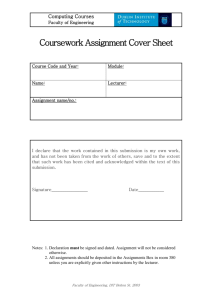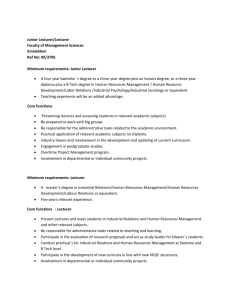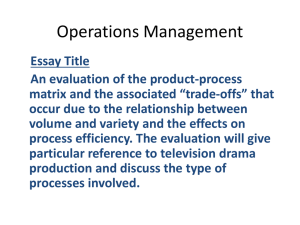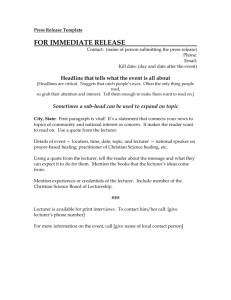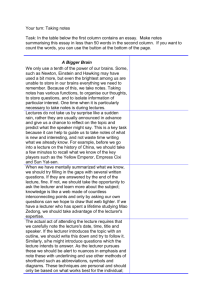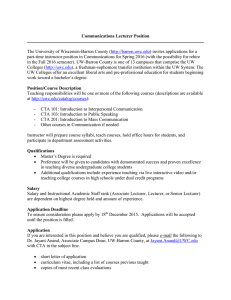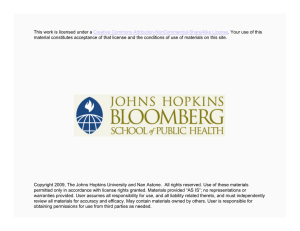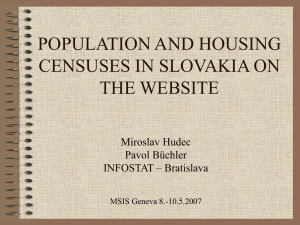Module: Official Statistics
advertisement
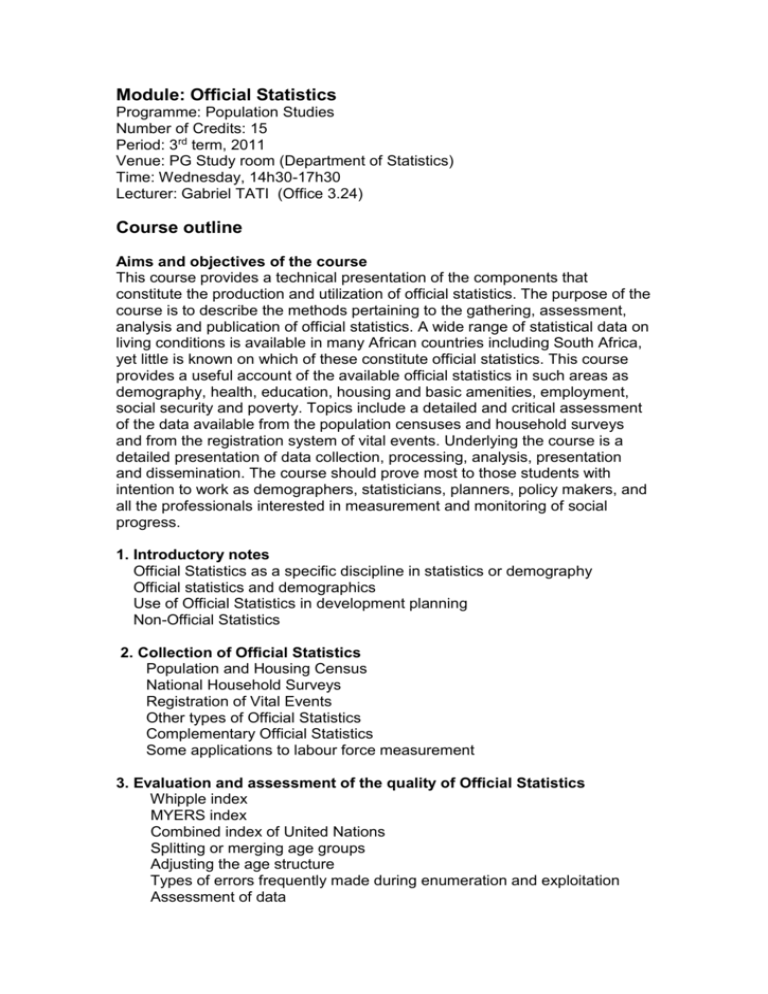
Module: Official Statistics Programme: Population Studies Number of Credits: 15 Period: 3rd term, 2011 Venue: PG Study room (Department of Statistics) Time: Wednesday, 14h30-17h30 Lecturer: Gabriel TATI (Office 3.24) Course outline Aims and objectives of the course This course provides a technical presentation of the components that constitute the production and utilization of official statistics. The purpose of the course is to describe the methods pertaining to the gathering, assessment, analysis and publication of official statistics. A wide range of statistical data on living conditions is available in many African countries including South Africa, yet little is known on which of these constitute official statistics. This course provides a useful account of the available official statistics in such areas as demography, health, education, housing and basic amenities, employment, social security and poverty. Topics include a detailed and critical assessment of the data available from the population censuses and household surveys and from the registration system of vital events. Underlying the course is a detailed presentation of data collection, processing, analysis, presentation and dissemination. The course should prove most to those students with intention to work as demographers, statisticians, planners, policy makers, and all the professionals interested in measurement and monitoring of social progress. 1. Introductory notes Official Statistics as a specific discipline in statistics or demography Official statistics and demographics Use of Official Statistics in development planning Non-Official Statistics 2. Collection of Official Statistics Population and Housing Census National Household Surveys Registration of Vital Events Other types of Official Statistics Complementary Official Statistics Some applications to labour force measurement 3. Evaluation and assessment of the quality of Official Statistics Whipple index MYERS index Combined index of United Nations Splitting or merging age groups Adjusting the age structure Types of errors frequently made during enumeration and exploitation Assessment of data 3. Use of Official Statistics in Population Change and Development Planning Economic and Demographic Change Persistence of high levels of fertility in Africa Health, Socio-economic change and demographic transition Women, Reproductive Health and Gender-related issues Migration and Development Education Employment Social Security and Welfare The demography of the Socially Excluded Methods of assessment Two written tests (50%) Assignments (10%) Written final exam (40%) Consultation time: Wednesday from 11h0 to 12h30 (in Office 3.24) Tutoring time:Tuesday and Friday during the time agreed upon with Mr Lapah Reading material 1) Course reader produced by the lecturer (separate components) 2) Principles and recommendations for popular and housing censuses. Revision 1 published by the United Nations New York 1998 ST/ESA/STT/SER.M/67/Rev.1 3) Additional extracts from relevant published documents will be distributed in class. 4) Specific books on the topics discussed are available in the UWC library (level 11). Please refer to the list distributed by the lecturer. Reading material Course reader produced by the lecturer (separate components) Additional extracts from relevant published documents Specific books on the topics discussed are available in the UWC library (level 11)

